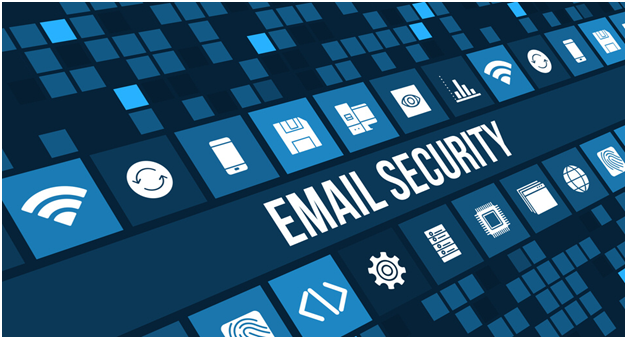“Battling for online security is a fight every single website owner participates in”. Your participation wasn’t a matter of choice rather a case of necessity to keep the website secure from the beginning. The time you take to decide to enhance the security features would result in more damage and lengthen the recovery process. Small business owners may consider themselves fortunate to have nothing to be taken away by hackers in this case. They use the excuse in favour to stay away from spending any amount on website maintenance and other related expenses. The reason the hackers target small websites is not the information related to business but a safe passage to continue performing illegal practices. It becomes important, therefore, that there has to be proper cloud security in place like snowflake db to safeguard your data. They could hijack the web server, set up a temporary one to transfer suspicious data or use web content to put malicious links. Your small website soon becomes a haven to carry illegal practices without you ever getting a clue of it. Web content filtering is therefore very important for the safety of your website.

The information lost or damage done couldn’t be reversed in any case. You can follow the basic security guidelines to stop the hackers in the first place. You can also take professional help from penetration testing company UK and secure your website. As a business owner, people have entrusted you with certain information. The least they expect is to have proper security measures in place to deter hackers from attacking it. Business owners should keep themselves updated by reading the latest updates on assured bridge and other credible sites. It would help them to analyze the situation and take the right decisions. Business owners need to keep a constant check to fix the problem before things get out of hand.
1. Update Software as The First Layer of Security
Hackers prey on easy targets. They make an entry through the backdoor. They track the software status and target it to hack the system. Outdated software is the first thing hackers check. You should run the updates periodically. The hackers don’t want to waste time. It wards off their interest. They know there are plenty of other options. They usually count on small websites which don’t have sufficient security layers to hack the system. The next part of the discussion is plugins. You should remove old, unused and outdated plugins without thinking twice.
2. Plan Allround Site Security
Small business owners need to stay proactive as they don’t have the excuse of technology being expensive or hiring expert staff is a burden on the company anymore. A web application firewall, for instance, is the first thing that comes to our mind. It scans the traffic and stops the threat from breaching the security wall. The investment of time on the part of the core management team was a huge hindrance, diverting attention from important tasks. Now you don’t have to spend a hefty amount on security appliances, host dedicated servers, hire staff etc. There are several Security-as-a-service (SECaaS) providers in the market. These agencies have made top-line security accessible, affordable to small level businesses.
3. Strong Passwords Ensure Peace of Mind
Keeping strong passwords have been the missing piece in the jigsaw. We’ll focus on how we can make passwords that don’t fall or crack upon attack. They should be a combination of alphabets, numbers, upper and lower case and special characters. Lengthy passwords are considered hard to break in comparison. You should keep different passwords for website server and database etc. You should change the passwords frequently following the NIST email security guidelines.

4. Secure Admin Pages
Small businesses should keep admin pages hidden. It makes things difficult for hackers. You should follow a procedure to stop the search engines from listing them. They’ve to spend time and surely don’t like a bit of it.
5. File Upload System Set-up
The file uploads are a tricky prospect. There’s always scope for bugs to pass through, no matter how accurate the system is. The hackers find it a trusted option to access the site’s data. One option is to stop direct access to these files. You can put a script in place to access these uploaded files to keep the system safe.
6. The SSL Security Shield
One of the easiest and affordable options to secure the data transaction from one end to another. The information shared by visitors in contact or other types of forms contain sensitive details and could prove to be a threat if it reaches the wrong hands. But with the best SSL Certificate, you can encrypt the entire data transaction. The hackers wouldn’t be able to get access to anything critical and leave empty-handed. The SSL certification is almost necessary for a website dealing with personal information of customers for business purposes.
7. Read Error Messages Closely
Small businesses, in particular, would have never thought about it. The information displayed in the error message could also work in a hacker’s favour. Small business owners need to be extra cautious to maintain and protect brand identity. You shouldn’t give too much information. The idea is to keep the hackers guessing. You need to keep the error messages open-ended to leave no clue behind.
8. Build a Habit of Back-up
Small businesses cannot leave anything onto fate. They need to be thinking about the worst situations to prepare themselves up for it. You should back-up the data online, offline and at multiple locations. There’s no other way to fight against hackers and other unforeseeable threats in the online world.
9. Utilized Web Security Tools for Final Test
The best way to save your site from hackers is to test the website security. The “Penetration Testing” is what it’s referred to in technical terms. Several web security tools are available to help you run the test. Most of them are free and offer insights considered necessary to fix the issue. These tools would operate in a similar way how hackers work to exploit the system and expose vulnerabilities to access the information.
Small businesses should focus on key security issues to protect the site from hackers. There’s a lot of assistance available in the form of affordable dedicated services, free tools to reduce the chances of falling prey to hackers.
Author Bio: Lucas is a Senior Content Manager at Assured bridge where he and his co-partner E.R. Hall work on creating an effective and easy to understand information. Connect with them on Assured Bridge.






